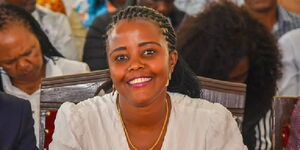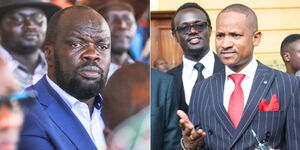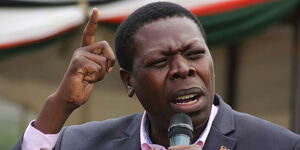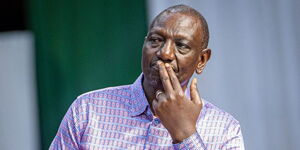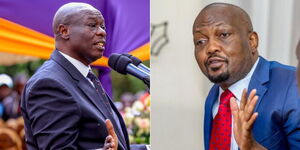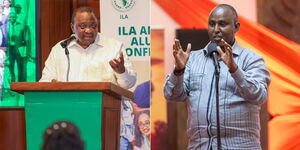The Coronavirus (Covid-19) outbreak was first identified in the Chinese city of Wuhan in December 2019 and recognised as a pandemic by the World Health Organization (WHO) on March 11, 2020.
It has since claimed the lives of thousands and hundreds of thousands more left infected.
In the last few weeks, the number of political leaders, celebrities and public figures testing positive for Covid-19 has been increasing shedding light on their susceptibility based on their public lives.
Most notably; Canadian Prime Minister Justin Trudeau's wife Sophie Gregoire Trudeau, UK Health Minister Nadine Dorris, Australia's Home Affairs Minister Peter Dutton, US actor Tom Hanks and his wife Rita Wilson, Arsenal FC Head Coach Mikel Arteta, Juventus FC defender Daniele Rugani, Miami Mayor Francis Suarez, Chelsea winger Callum Hudson-Odoi among many others.
According to the Centre for Disease Control (CDC), person-to-person contact is the main mode of transmitting the Coronavirus. It can be spread through sneezing and coughing if an infected person accidentally or potentially sprays you with respiratory droplets.
Health Ministers
What sets these groups of persons apart is that they are public figures, which makes them a center of attention and therefore have higher chances of exposure through random meetups.
For example, several Health ministers from around the world have tested positive; they are in charge of the docket, and so must lead the campaign against the disease, therefore, seemingly more vulnerable.
On Friday, March 13, Health Cabinet Secretary Mutahi Kagwe confirmed Kenya's first case of the Coronavirus. As a public figure and the lead in the docket, he is expected to tour medical facilities where the infected are isolated.
While executing a health minister's mandate, one is likely to meet up with medical practitioners handling patients, with him is an entourage of senior government officials and politicians. With the need for daily updates, a health minister will have to issue press statements - from the close contact, to even handling the microphones.
Biased Testing
US National Basketball Association's Rudy Gobert who plays for the Utah Jazz, prior to testing positive for the virus joked around by touching all microphones during a presser. He later tested positive for Covid-19.
In the US, New York-based publication, Insider, on March 13, reported that celebrities were getting coronavirus tests faster than everyone else, indicating that public figures were likely to announce their results way ahead of the general population and as such give the skewed impression that they are at higher risk.
Politicians, celebrities and other public figures are generally more protected - living in fortresses and with security details - but not as much against a disease of this nature.
With the 2022 succession politics in high gear, politicians can be in two or more places in a single day. All these areas, they would interact with people, randomly stop to have conversations, and even meals with members of the public.
For instance, Deputy President William Ruto on Saturday, March 14, toured Nandi and Uasin Gishu counties where he held separate rallies. In the process, he was gifted a Bible by a resident of Mosoriot, shook hands with the locals, including handing an elderly woman a title deed.
Journalists
A video of Iranian Deputy Health Minister Iraj Harirchi giving an interview about Covid-19 on state television in February, coughing in-between the interview, has since gone viral after he later tested positive for the disease.
This has highlighted the risk on journalists covering the pandemic as well as covering general news due to the impossibility of avoiding interacting with people who are yet to be tested.
With the virus spread through contact, and surviving on a hard surface for up to nine hours, an infected person could use a table at a press conference, hotel, microphones - all these channels through which the disease can be spread.
When it was first reported in Kenya, journalists moved to the streets to interview random people. The patient had landed in Kenya on March 5, 2020, with no one sure who she might have interacted with.
Celebrities around the world make stops to sign autographs for their fans, pose for a photo, all these have been put in check by the spread of the Coronavirus.
If tested positive, their cases are widely reported and create the, "If they can get it, who am I? Or, How safe am I?" mentality.
But despite being theoretically more exposed than the general population, with proper hygiene and adherence to WHO coronavirus guidelines, public figures are more or less as vulnerable as the rest of the world.
One exception is public gatherings, that have since been banned by the government, including international meetings, sporting activities and political rallies.
Public figures also do not enjoy the privacy regular citizens would enjoy as a confirmation of their positive status would make national or even international headlines.







